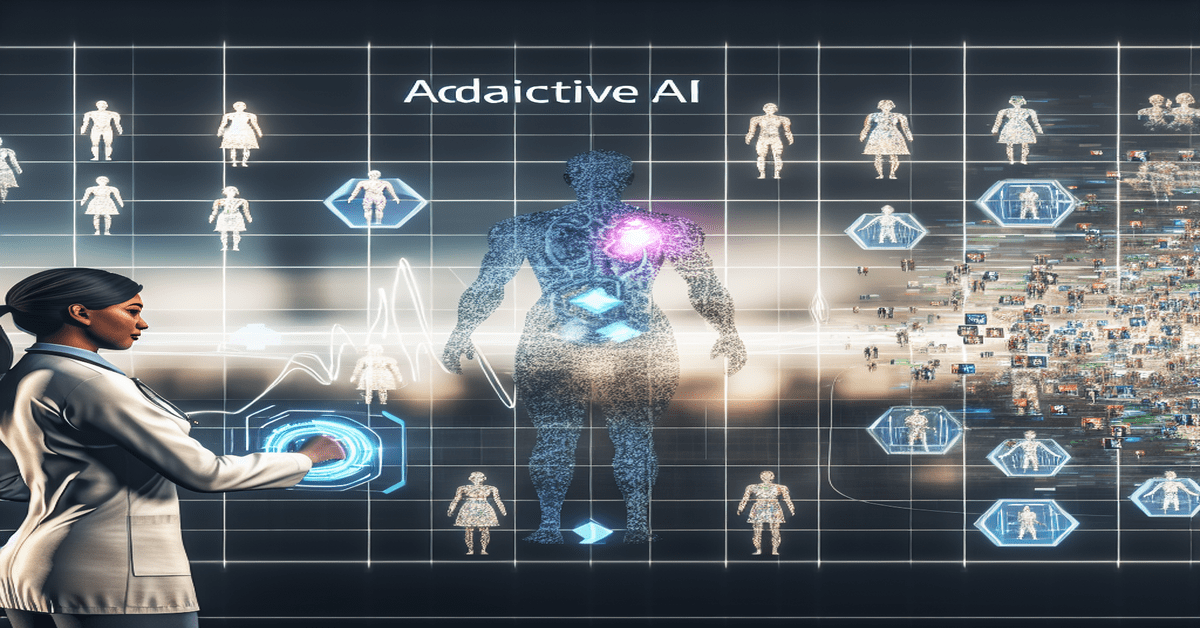The Future of Healthcare: How Adaptive AI is Revolutionizing Patient Care and Transforming Strategy
The healthcare industry is on the cusp of a major transformation, driven by the rapid advancements in artificial intelligence (AI) technology. While predictive analytics has been a valuable tool for forecasting outcomes based on historical data, the emergence of adaptive intelligence is taking healthcare to new heights. This innovative approach to AI is enabling healthcare providers to deliver more personalized, proactive, and efficient care, ultimately improving patient outcomes and transforming healthcare strategy.
From Predictive to Adaptive: The Evolution of AI in Healthcare
Predictive analytics has been a game-changer in healthcare, allowing providers to anticipate patient needs and optimize care delivery based on historical data. However, the limitations of predictive analytics have become increasingly apparent in today’s fast-paced, data-driven healthcare environment. Enter adaptive intelligence – a more advanced form of AI that continuously learns from new data and evolves in real-time.
Unlike traditional predictive analytics, which relies on static models and historical data, adaptive intelligence systems are designed to learn and adapt as new information becomes available. This means that healthcare providers can make more accurate, dynamic decisions based on up-to-the-minute data, rather than relying solely on past trends and patterns.
Improving Patient Outcomes with Continuous Monitoring and Early Intervention
One of the most significant benefits of adaptive AI in healthcare is its ability to monitor patients’ health continuously and detect potential issues early on. By analyzing real-time data from various sources, such as electronic health records, wearable devices, and patient-reported outcomes, adaptive AI systems can identify subtle changes in a patient’s condition that may indicate an emerging problem.
For example, an adaptive AI system can detect early signs of an adverse drug reaction and alert healthcare providers to intervene before the situation escalates. This proactive approach to patient care can significantly reduce preventable deaths and hospitalizations, improving overall patient outcomes.
Streamlining Workflows and Enhancing Patient Engagement
In addition to improving patient outcomes, adaptive AI is also transforming healthcare operations by streamlining workflows and enhancing patient engagement. By connecting siloed information systems and automating routine tasks, adaptive AI can help healthcare providers work more efficiently and effectively.
Moreover, adaptive AI can keep patients engaged and informed throughout their healthcare journey. By providing personalized recommendations, reminders, and educational content, adaptive AI systems can help patients stay on track with their treatment plans and make informed decisions about their health.
The Strategic Impact of Adaptive AI in Healthcare
The integration of adaptive AI is not just changing the way healthcare is delivered – it’s also transforming healthcare strategy as a whole. By enabling continuous learning, real-time risk assessment, and proactive intervention, adaptive AI is making healthcare more responsive, personalized, and efficient.
One of the biggest challenges in healthcare has been the dependence on patients to initiate most actions, such as scheduling appointments, filling prescriptions, and adhering to treatment plans. Adaptive AI addresses this challenge by proactively assessing patient needs and taking action before issues become severe. This shift towards proactive, personalized care is setting a new standard for healthcare strategy and paving the way for a more sustainable, effective healthcare system.
Embracing the Future of Healthcare with Adaptive AI
As the healthcare industry continues to evolve, it’s clear that adaptive AI will play an increasingly critical role in shaping the future of patient care and healthcare strategy. By embracing this powerful technology, healthcare providers can unlock new opportunities to improve patient outcomes, streamline operations, and deliver more value to patients and stakeholders alike.
However, the successful implementation of adaptive AI in healthcare requires more than just technology – it also requires a fundamental shift in mindset and culture. Healthcare organizations must be willing to embrace change, invest in the necessary infrastructure and talent, and foster a culture of continuous learning and innovation.
The Time to Act is Now
The potential of adaptive AI in healthcare is immense, but the window of opportunity is closing fast. Healthcare organizations that fail to adapt to this new reality risk falling behind their more innovative competitors and missing out on the many benefits of this transformative technology.
If you’re a healthcare provider looking to stay ahead of the curve, now is the time to start exploring the possibilities of adaptive AI. By partnering with experienced AI strategists and solution providers, you can develop a customized plan for integrating adaptive AI into your organization and start realizing the benefits of this powerful technology today.
#AdaptiveAI #HealthcareTransformation #PatientOutcomes #HealthcareStrategy #InnovationInHealthcare
-> Original article and inspiration provided by ReviewAgent.ai Kapil Joshi
-> Connect with one of our AI Strategists today at ReviewAgent.ai


